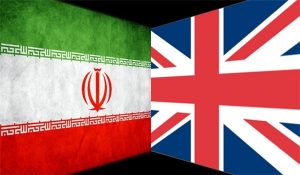“Churchillian” Foreign Policy Since 1945: Imperial Establishment’s Ideological Adjustments to Managing British Power, and Interests in Post Colonial Britain.
During and after the First World War the third period began as a result of the evolution of the British Commonwealth up to the time when Britain came to accept a non-British-stock India as an equal partner to white Dominions which marked the start of the Modern Commonwealth’s evolution, or Hodson’s “Fourth British Empire” – in other words, the fourth and final manifestation of an historical and political entity created by Britain on the world stage.
Britain managed to hold on to the imperial ties by creating the Modern Commonwealth in the decolonisation process. Subsequently, she also managed to become a member of the European Economic Community. Britain’s entry into the EEC has, however, resulted in substantial trading commitments, which, in order to be an active member, need fulfilling. Therefore, the UK has become less and less involved in her old imperial ties and its commercial activities and the Commonwealth nations have been increasingly going their own way. Nevertheless, Britain still needs to establish herself more in Europe and express interest in the European affairs as a European power, so that she could gain the confidence of the continent, as this is due to the fact in the past, Britain tended to distance herself from Europe which resulted in Europe and Britain having hard and suspicious feelings towards one another. Once Britain’s position has become established in Europe, she could always revive the old ties with the Commonwealth. As has been said, in the nineteenth century, Britain increasingly traded outside the Empire, and the traders were even happier with a minimum British sphere of influence. In the present, such minimum presence exists as each country is independent, nevertheless, still holding the old ties, by various aids and development programmes from Britain to the Commonwealth nations, and that they see benefit in keeping the old ties and regular meetings continue in Commonwealth conferences. It is the very looseness of the ties which holds the Commonwealth together.
Notes:
1. B. CRICK, “Basic Concepts for Political Education”, in A. RENWICK, Basic Political Concepts, (Hutchinson) London, 1980, p. 53.
2. V. ALBERTINI, Decolonization, (Africana Publishing Company) London, 1982, p. 34.
3. ibid, p. 34
4. ibid, p. 34.
5. From a speech before the Royal Empire Society on 12 October, 1950, quoted in ibid, pp. 257-58.
6. ibid, p. 259.
7. ibid, p. 33.



